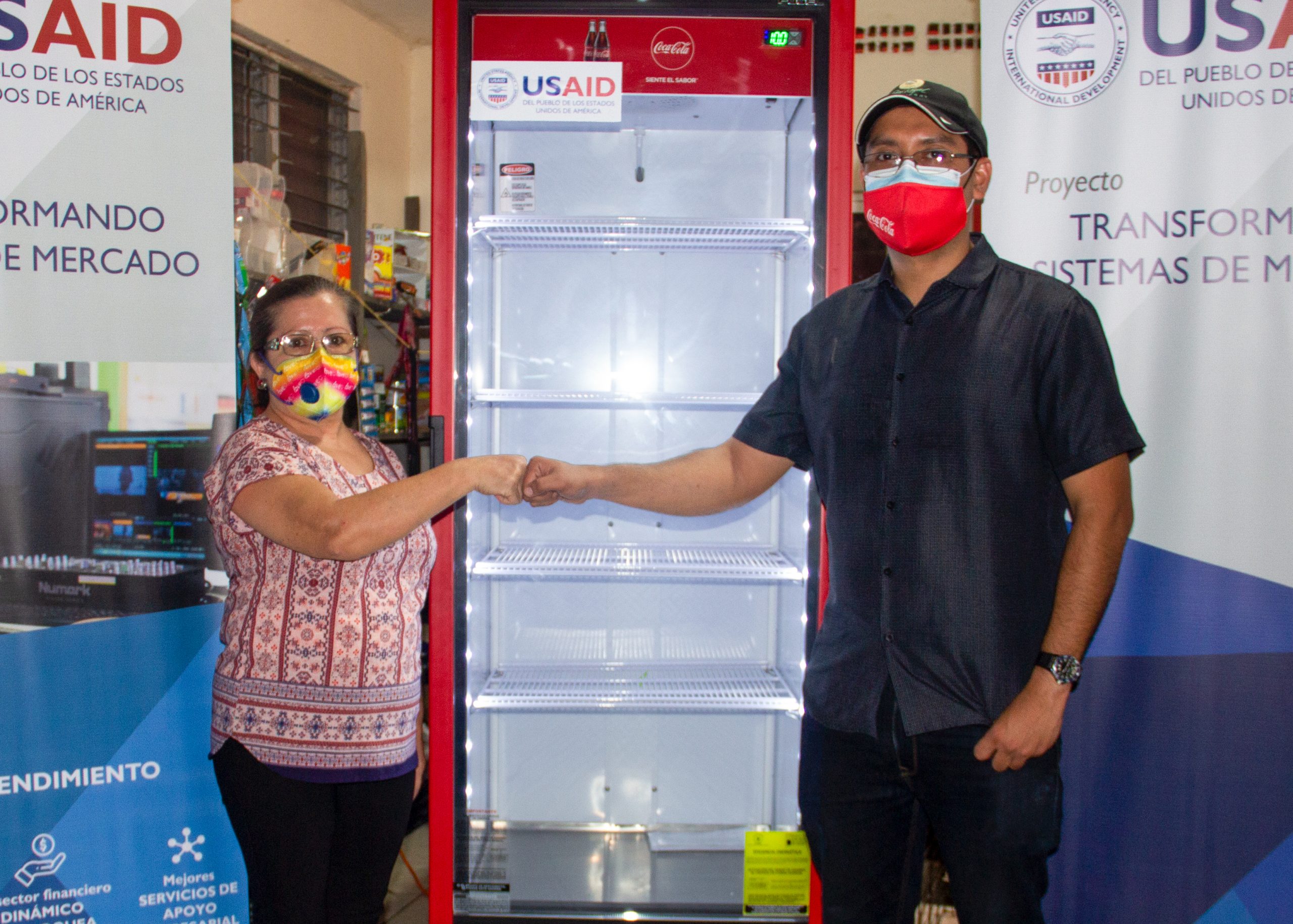
In early 2021, the USAID/Honduras Transforming Market Systems (TMS) Activity established two new grant mechanisms to support small business owners in Honduras. The first was 1,5000 microgrants combined with microcredit to support micro, small-, and medium-sized enterprises (MSMEs). The second was nano-grants through cooperatives and networks of MSMEs to help enterprises incentivize greater employment of young people.
The TMS Activity, implemented by ACDI/VOCA and funded by USAID, collaborates with the government of Honduras to address the internal root causes of migration and to find ways to promote a more secure, inclusive Honduras. In recent years, thousands of Hondurans have tried to migrate or seek asylum at the southern U.S. border due to the many crises occurring in their own country. Through these two new grant initiatives, the TMS Activity aims to help strengthen economic market systems locally, as a long-term solution to the migration crisis.
Providing Microgrants to 1,500 Enterprises
Together with its local partner Fundación Covelo (COVELO), the TMS Activity chose seven microfinance institutions to disburse emergency funds and credit to 1,500 microenterprises. The team selected these institutions from COVELO’s 40-strong network. The team assessed their financial indicators, customer loyalty, capacity to manage the program’s financial products at established interest rates, ability to reach hurricane-affected areas, and experience lending in rural areas, especially to women.
Together, these institutions have a combined registry of 96,803 clients, or enterprises, from which they will select the 1,500 microcredit recipients in Tegucigalpa, San Pedro Sula, Ocotepeque, Juticalpa, and Santa Rosa de Copán.
Each of the seven microfinance institutions also have an action plan defined by the TMS Activity and COVELO. They will choose the first 1,420 microcredit recipients based on five criteria: (1) a location within a hurricane-affected zone, (2) one to 10 employees, (3) an ability to improve or create new jobs for women or youth, (4) an ability to attend trainings on natural disaster resilience, and (5) ownership by women or youth. To date, 1,200 enterprises have qualified and progressed to the second phase.
Providing Nano-Grants to 2,240 Grocery Stores and Other Food-Related Enterprises
The TMS Activity also partnered with the Honduran Cerveceria Foundation (CHSA) to identify 2,240 enterprises to receive nano-grants. To identify them, the team used the store locator app PulpeCerca’s registry of 73,000 grocery stores, convenience stores, cafeterias, and small restaurants. They selected recipients based on three criteria: (1) at least a 30 percent loss in sales in the last three months, (2) hurricane-related equipment loss (primarily refrigeration), and (3) owners who are the only income earners in their households. The team will also give preference to women, with at least 70 percent of the nano-grants going to women-owned enterprises.
So far, the TMS Activity and CHSA have disbursed nano-grants to 331 MSMEs across 27 municipalities and 10 departments during phase one. This first round of recipients all experienced losses due to last year’s hurricanes.
Engaging Rural Cooperatives to Distribute Grants
With its partner, the Foundation for Rural Business Development (FUNDER), the TMS Activity also selected 75 rural cooperatives, or cajas rurales, across 21 municipalities that will serve 1,000 agribusinesses and other rural enterprises. The team chose them from FUNDER’s network of 670 cooperatives using the following criteria: (1) enough liquidity to resume operations, (2) a presence in hurricane-affected areas, and (3) activity in municipalities with the highest levels of migration to the United States.
Together, the cooperatives will distribute $250 nano-grants to 600 microenterprises and $500 grants to 400 enterprises focused on agriculture, food security, and nonfood-related, rural business. The cooperatives also began identifying potential grant recipients based on whether they were affected by last year’s hurricanes, suffered from low crop prices due to poor harvests, were affected by the COVID-19 pandemic, or are in areas with above average levels of youth migration. To date, the TMS Activity and FUNDER have reviewed 1,734 businesses and pre-selected 350 MSMEs to receive grants.
While the journey to curbing migration is long, financial support for small businesses is one path to addressing the root causes of illegal immigration from Honduras.
Learn more about the USAID/Honduras Transforming Market Systems Activity.
Learn more about our work in Honduras






